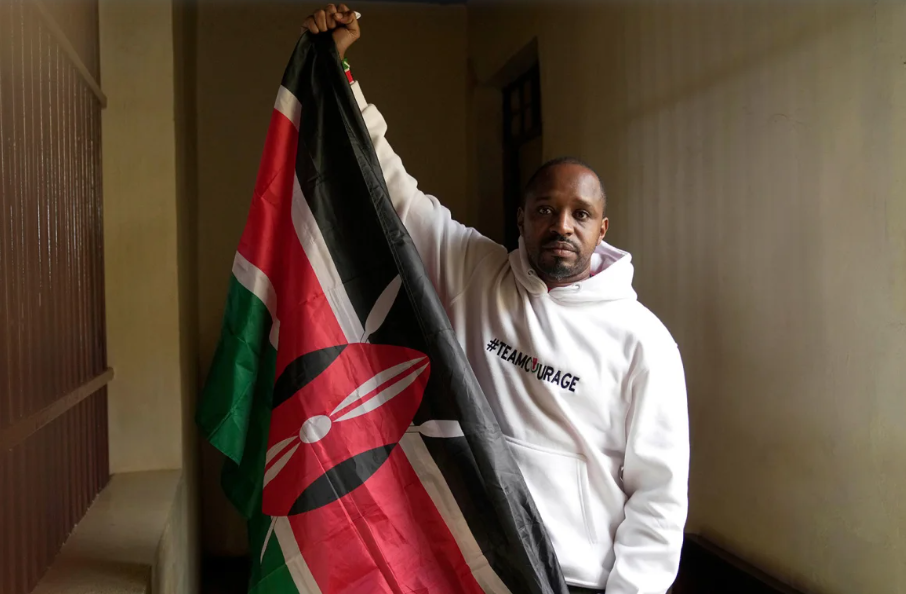
Kenya’s government is facing growing criticism over its handling of recent anti-government protests, as prominent activists and human rights groups accuse authorities of weaponizing terrorism charges to silence dissent. The controversy intensified after renowned activist and photographer Boniface Mwangi was arrested over the weekend, initially accused of facilitating terrorism during the June 25 demonstrations.
Mwangi, 42, was later charged with possession of ammunition without a valid firearm certificate, after police claimed to have discovered two unused teargas canisters and a blank round at his Nairobi office. He was released on bail Monday but remains defiant, calling himself “a human rights defender, not a terrorist.” He vowed to continue organizing against President William Ruto’s government, which he accuses of failing its citizens.
A wave of arrests and terror charges
Mwangi’s case is part of a larger crackdown. Activists report that over 100 protesters have been charged in recent weeks with serious offenses, including terrorism, arson, and money laundering, following nationwide demonstrations sparked by public frustration with rising costs of living and police brutality. Many of the protesters are young Kenyans, the same demographic that helped propel Ruto to victory in the 2022 elections.
The protests were reignited after a series of incidents involving alleged police abuse, including the death of a teacher in custody. Demonstrations escalated into violent confrontations, with water cannons, tear gas, and armed police units deployed in Nairobi and other cities. CNN footage and local reports captured men wielding batons marching alongside police and attacking civilians, while businesses were torched and a police station was stormed.
Authorities have defended their heavy-handed approach. President Ruto warned that “police are trained to deal with criminals, not to parent,” while Interior Minister Kipchumba Murkomen controversially authorized officers to shoot protesters who approached police stations, later attempting to walk back the order after public outcry.
Rights groups condemn ‘criminalization of dissent’
Civil society organizations and legal bodies have expressed alarm at the government’s tactics. The Police Reforms Working Group issued a statement condemning the misuse of the Prevention of Terrorism Act to control public demonstrations, warning that such practices erode Kenya’s criminal justice system and international credibility.
Similarly, the International Commission of Jurists (Kenya chapter) decried a “growing pattern of arbitrary arrests and trumped-up charges”, calling the trend a direct threat to democracy. The group noted that what began as isolated incidents of harassment against young protesters has escalated into a systematic suppression of dissent.
Despite the backlash, the Office of the Director of Public Prosecution defended the terrorism-related charges, asserting that the protests were “calculated and coordinated acts of violence” and that charges were based on available evidence.
A history of violent crackdowns
Kenya has a long history of protest-related confrontations. In July 2025, at least 38 people were killed and 130 injured during demonstrations, according to the Kenya National Commission on Human Rights. Ruto’s administration has been accused of using excessive force and political intimidation, echoing tactics of previous governments that activists like Mwangi have consistently opposed.
Mwangi believes the government is intentionally creating fear among youth protesters, warning that criminal records could jeopardize their employment prospects and travel opportunities. “They want to scare the kids and their parents,” he told CNN. “But I will keep fighting. The only thing that can stop me is a bullet.”
As Kenya heads toward its next hearing on August 21, the battle between the government and civil society is intensifying, raising urgent questions about democracy, police accountability, and freedom of expression in the East African nation.
